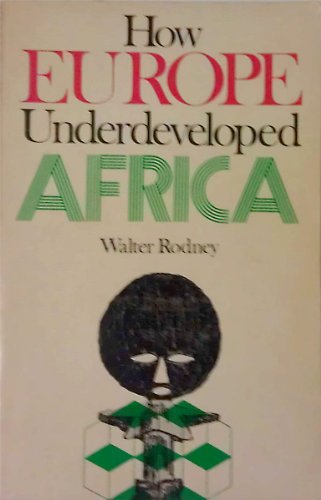

It is truly remarkable, given how short a time Africa has had to develop on its own as a modern society, how quickly African states have been able to modernize, and how strong the resilience of the various African peoples is to the enormous destruction they have had to endure.

Going from the earliest African empires and states and their social relations, via the first wave of slave-trading, to full-blown colonialism, Rodney shows us how Europeans consistently attacked, pillaged, exploited, suppressed, enslaved, divided and discriminated against Africans, and the enormous impact the various stages of slavery and colonialism had in destroying the indigenous opportunities for coming out of feudalism into capitalist and industrialized societies. "How Europe Underdeveloped Africa" is probably Rodney's magnum opus of popular science, aimed at a general public, and very accessible and informative.Rodney describes in chronological sequence the development of Africa as a continent and the way in which the Europeans interfered with it.

A consistently intelligent and politically involved Marxist thinker, Rodney was one of the second generation of black socialists to write about African issues, after the tradition of CLR James and Eric Williams, the former of whom tutored Rodney. The Guyanan intellectual Walter Rodney wrote this book directly after the 1960s wave of African independence declarations, to show why Africa was so underdeveloped compared to the 'First World', and who was to blame for this. This meticulously researched analysis of the abiding repercussions of European colonialism on the continent of Africa has not only informed decades of scholarship and activism, it remains an indispensable study for grasping global inequality today. In his magnum opus, How Europe Underdeveloped Africa, Rodney incisively argues that grasping "the great divergence" between the west and the rest can only be explained as the exploitation of the latter by the former. In 1980, shortly after founding of the Working People's Alliance in Guyana, the 38-year-old Rodney would be assassinated.

His deportation catalyzed 20th century Jamaica's most significant rebellion, the 1968 Rodney riots, and his scholarship trained a generation how to think politics at an international scale. In each locale, Rodney found himself a lightning rod for working class Black Power. The classic work of political, economic, and historical analysis, powerfully introduced by Angela Davis In his short life, the Guyanese intellectual Walter Rodney emerged as one of the leading thinkers and activists of the anticolonial revolution, leading movements in North America, South America, the African continent, and the Caribbean.


 0 kommentar(er)
0 kommentar(er)
